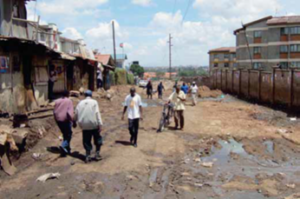Rental housing and alternative forms of ownership and tenure

ㅤ
Examples of innovative forms of tenure and land administration
Certification of land possession in two phases—a less complex form followed by a more comprehensive form—is under development in Ethiopia.
Primary, demarcated and registrable leases, with different levels of technicality, and creation of land records prior to land registration are under consideration in Lesotho.
Occupancy rights were accepted in Mozambique as full rights equivalent to registered land rights following the passing of the Land Law in 1997. In addition, oral evidence equates to title evidence.
Flexible land tenure whereby individual starter titles that are group-based can be later upgraded to individual title, is being implemented in Namibia.
Formal registration at national level only where plots are larger than 5 hectares has been proposed in Rwanda; otherwise local registration methods are to be used.
Residential licenses in urban areas can be converted to full title later in Tanzania.
Two options (ownership title and a certificate of occupancy) for the same parcel of land are available in Uganda.
Developments of Social Housing in South Africa
South Africa has shown strong action towards developing a social housing sector that produces affordable rental housing. In particular, the development of housing associations to manage low-income estates and rental accommodation has been encouraged. According to Government estimates, there are 60 institutions offering 25,000 rental units. Developments are financed with the support of the institutional housing subsidy programme.
Community land trusts (CLTs) in Kenya

- Figure: The slum of Kibera in Nairobi, Kenya. Photo © UN-HABITAT/Claudio Acioly. Source: https://unhabitat.org/sites/default/files/download-manager-files/Affordable%20Land%20and%20Housing%20in%20Africa.pdf
Community Land Trusts (CLTs) have been experimented with as a means of providing affordable access to land for housing and related purposes in secondary towns in Kenya since the early 1990s. CLTs combine the advantages of communal tenure with the merits of market oriented individual ownership. By a group retaining ownership of the land and allowing members to hold leases from the group title, transfers of the land can be controlled and speculation discouraged. The basic principles o fa CLT include:
- Optimising the collective strengths of members in the process of land acquisition, resource mobilisation, obtaining official permits and getting the government and municipality to provide infrastructure.
- Keeping all the land in the settlement under one head title held by trustees.
- Reducing the cost of land acquisition by doing away with title surveys for individual plots and getting the Lands Department to waive the initial land premium.
- Creating conditions in which members are encouraged to invest in land development and market transactions in improvements (i.e. buildings) are possible.
More information:
- UN-Habitat’s Affordable Land and Housing in Africa Report. Source: Augustinus, 2005: https://unhabitat.org/sites/default/files/download-manager-files/Affordable%20Land%20and%20Housing%20in%20Africa.pdf
- UN-Habitat’s Affordable Land and Housing in Africa Report. Source: https://unhabitat.org/sites/default/files/download-manager-files/Affordable%20Land%20and%20Housing%20in%20Africa.pdf